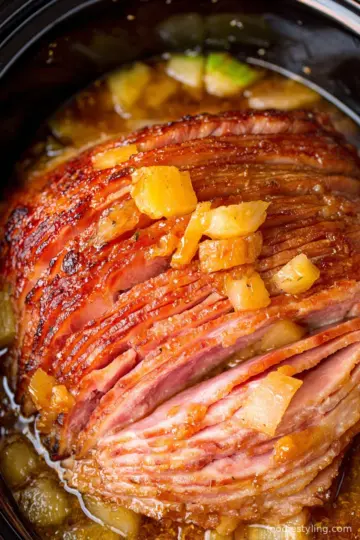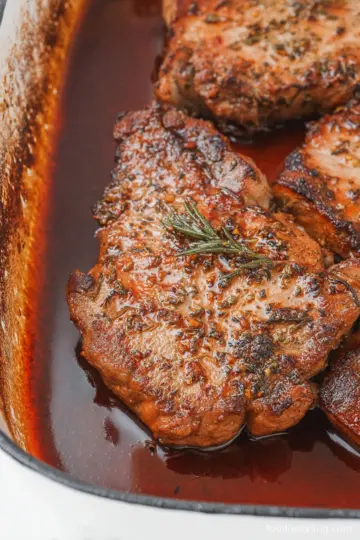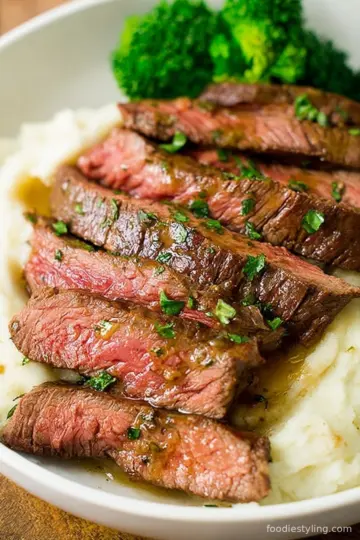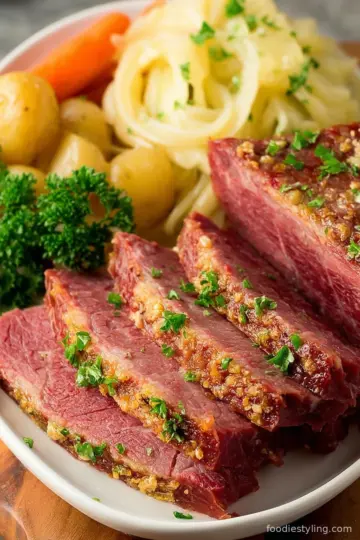If you crave fork-tender pork with a golden, crackly crust that fills the whole house with mouthwatering aromas, my Roast Pork Butt in the Oven is just the ticket! This savory classic brings deeply seasoned, melt-in-your-mouth meat that's so juicy, you'll want to eat it straight out of the pan.
The secret? A simple seasoning rub and a slow roast in the oven for incredible flavor payoff with hardly any fuss. This method guarantees a crowd-pleasing main that’s as easy for weeknights as it is impressive for Sunday dinners or holiday feasts.
Inspired by family gatherings and years of perfecting the roast at home, this is hands-down my favorite way to turn a humble pork butt into a memorable meal. Get ready for rave reviews!
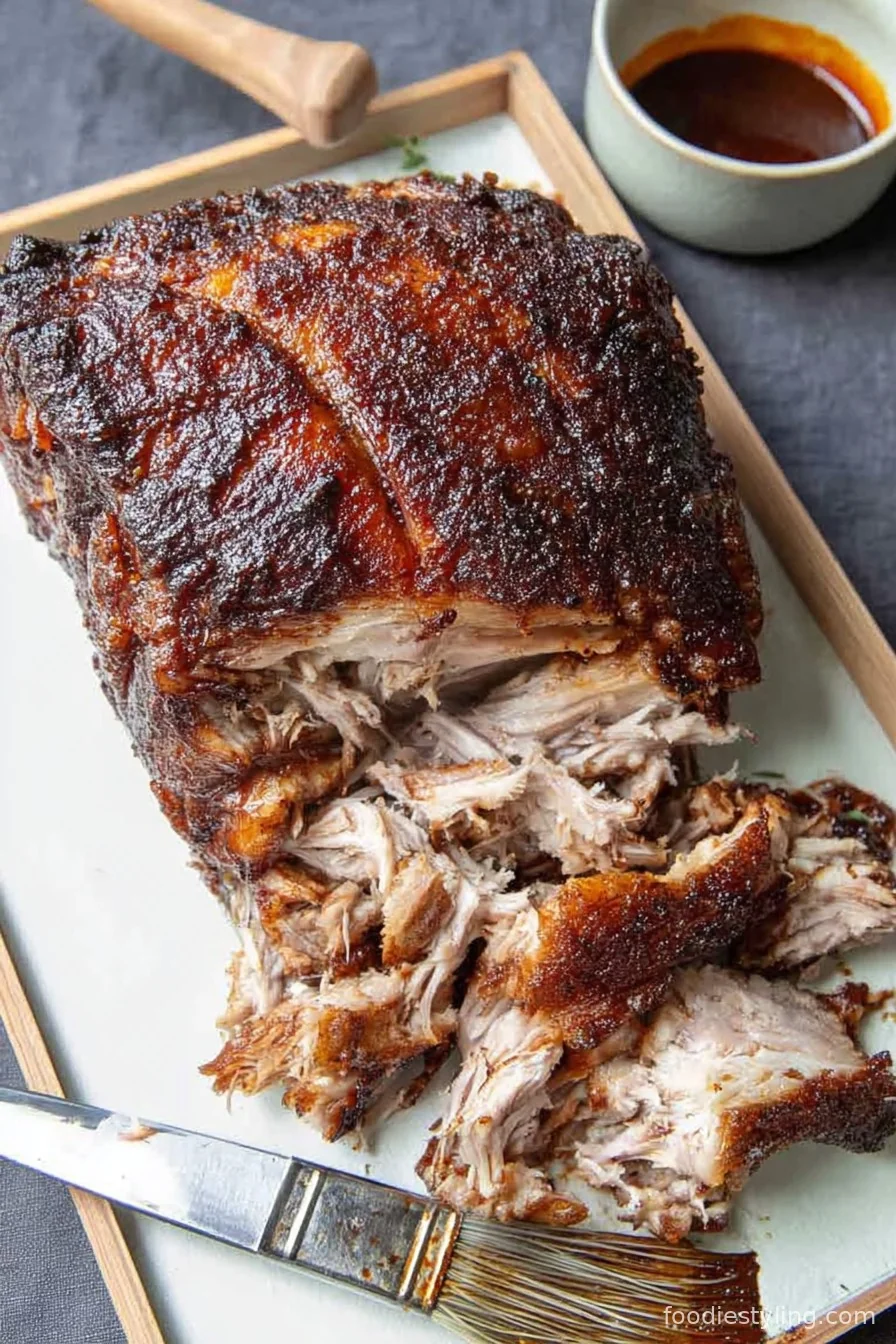
Why You'll Love This Recipe
- Delivers incredibly tender, juicy pork every single time
- Minimal prepâ€"just season, pop in the oven, and relax
- Creates irresistible crispy edges and a flavorful crust
- Perfect for feeding a crowd or meal prepping
- Versatile: delicious on its own, in sandwiches, tacos, or with your favorite sides
Key Ingredients for Roast Pork Butt in the Oven
See recipe card below for full list of measurements, ingredients, and instructions.Pork Butt (Boston Butt)
This well-marbled and budget-friendly cut is the star of the show, known for becoming beautifully tender and flavorful when slowly roasted. Choose a bone-in pork butt (about 5-6 pounds) for the juiciest results, but boneless will work in a pinch. If your cut has a thick fat cap, you can trim slightly but leave some for maximum flavor.
Garlic
Fresh garlic adds punchy, aromatic depth to the rub and seeps into the pork as it roasts. Use freshly minced or grated for best results. If you're out, substitute with 1 teaspoon garlic powder per 3 cloves for a decent backup.
Brown Sugar
A touch of brown sugar in the rub caramelizes during roasting, helping the pork develop a gorgeous golden crust and balanced savory-sweet notes. Light or dark brown sugar works. If needed, swap in coconut sugar or leave out for a less sweet finish.
Smoked Paprika
Smoked paprika lends the roast a subtle smokiness and rich color without overpowering its natural flavor. You can use regular paprika or even chipotle powder for extra heat, but the smoky variety is highly recommended for the best aroma.
Dijon Mustard
Coating the pork in Dijon mustard helps the seasoning stick and gives a gentle tang that cuts through the richness of the meat. If you don't have Dijon, whole grain or yellow mustard will do, or try a mixture of mustard and a splash of apple cider vinegar for brightness.
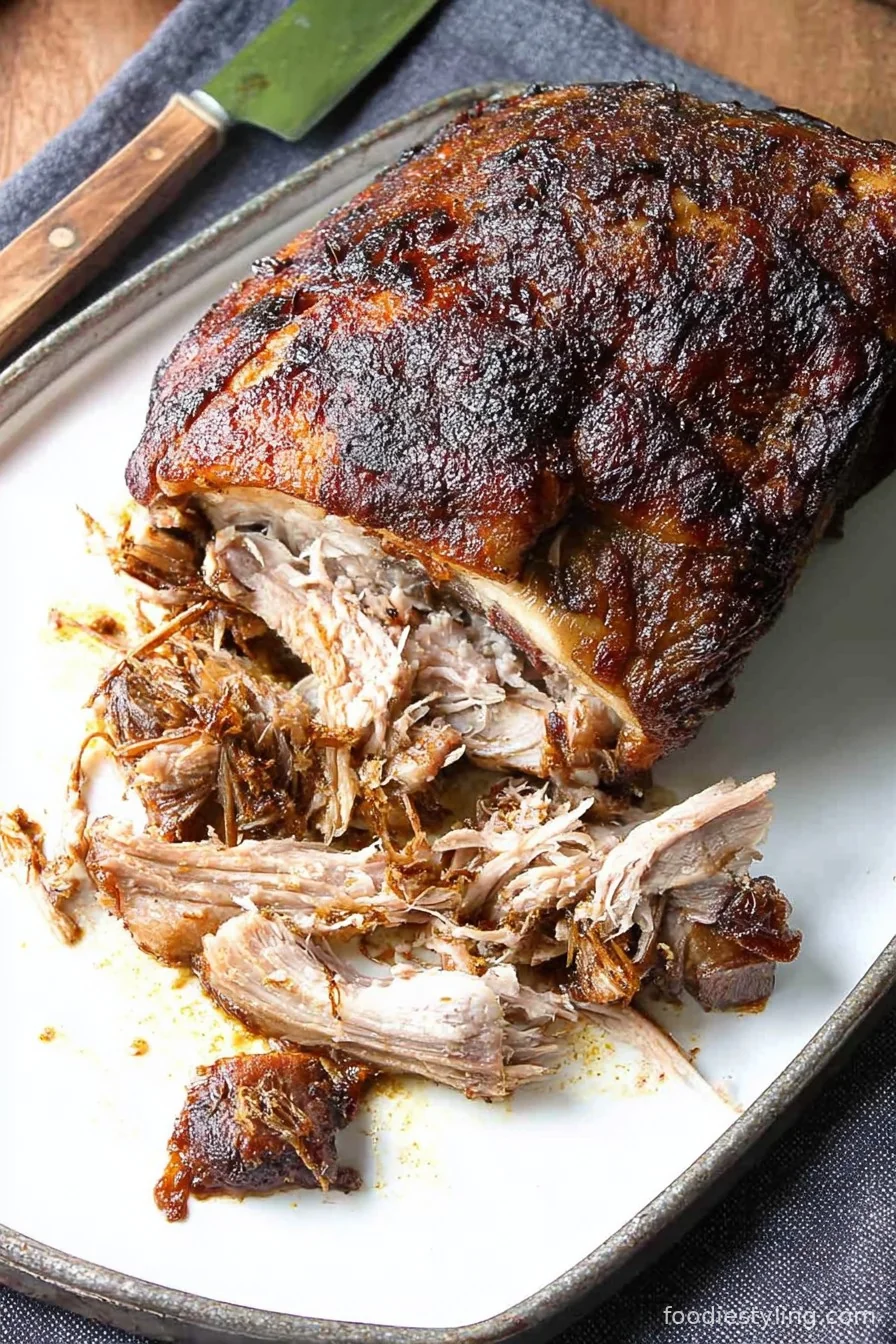
Instructions for Roast Pork Butt in the Oven
See recipe card below for full list of measurements, ingredients, and instructions.Prep the Pork Butt
Remove your pork butt from the fridge about 30 minutes before roasting to take the chill offâ€"this promotes even cooking. Pat it dry thoroughly with paper towels. Trim excess fat if needed, but leave about a quarter inch for flavor.
Make the Seasoning Rub
In a small bowl, whisk together the olive oil, Dijon mustard, kosher salt, brown sugar, smoked paprika, black pepper, minced garlic, thyme, oregano, and red pepper flakes if using. You want a thick, aromatic paste.
Season the Pork
Rub the mixture all over the pork butt, massaging into every nook and cranny. Be generousâ€"this creates that ultra-flavorful crust. If you have time, marinate in the fridge (covered) for up to 24 hours for even deeper taste.
Prepare for Roasting
Preheat your oven to 300°F (150°C). Place the pork butt, fat side up, on a rack in a large roasting pan or Dutch oven. Pour 1 cup water or broth into the bottom of the pan (not over the pork), which helps keep it moist and catches drippings.
Slow Roast the Pork
Roast uncovered for about 3.5 to 4 hours (roughly 40â€"45 minutes per pound), or until the meat is deep golden, a crust forms, and an internal thermometer reads at least 195°F (90°C) in the thickest part (for pull-apart tender pork). Add a splash more water to the pan if it dries.
Rest and Serve
Remove from the oven and tent loosely with foil. Let the pork rest for at least 20 minutes before slicing or shreddingâ€"this step locks in juicy flavor. Slice, pull, or chop the pork and serve on a platter with pan juices.
Recipe Variations
Sweet & Spicy Twist
Add 1 tablespoon maple syrup and 1 teaspoon ground cumin to the rub for a sweet and warming kick. Toss in extra chile flakes or chipotle powder if you love more heat.
BBQ Pulled Pork Style
Skip the herbs and instead add 1 tablespoon BBQ seasoning mix to the rub. Serve finished pork with your favorite barbecue sauce, piled on buns with slaw.
Herb-Lover’s Option
Amp up the freshness by doubling the thyme and oregano, and add chopped fresh rosemary or sage to the rub. This works especially well for a holiday feast centerpiece!
Make It Gluten-Free
All listed ingredients are naturally gluten-freeâ€"just double-check your mustard and broth labels to ensure there are no hidden gluten-containing ingredients.
Smaller or Boneless Cut
Using a smaller or boneless pork butt? Reduce the cook time by about one hour, but always check for that magic 195°F temp and fork-tender texture.
Serving Suggestions
Serve your roast pork butt with creamy mashed potatoes, roasted root vegetables, or a bright, crunchy slaw. Or pile the pork into soft rolls for unbeatable sandwiches! Garnish with chopped parsley, sprigs of fresh herbs, or a drizzle of the pan juices for extra savoriness.
Storage and Reheating
Leftover roast pork butt will keep in an airtight container in the fridge for up to 4 days. For best results, reheat gently in a covered dish at 300°F (150°C) until just warmed through, adding a splash of broth or water to keep it moist. Pork butt also freezes beautifully: cool, then freeze portions in zip-top bags for up to 3 months. Thaw overnight in the fridge and reheat as above.
Frequently Asked Questions About Roast Pork Butt in the Oven (FAQ)
Q: Can I use pork shoulder instead of pork butt?A: Absolutely! Pork shoulder and pork butt are often used interchangeably. Just make sure to use a cut with good marbling for best results.
Q: Do I need to cover the pork while roasting?A: No, roasting uncovered lets the crust develop and helps the meat get beautifully caramelized. Just keep an eye on it and add a splash of water if the pan drippings begin to burn.
Q: What’s the best way to shred the pork?A: Let the pork rest, then use two forks to pull the meat apart easily. If you prefer slices, just carve against the grain using a sharp knife.
This roast pork butt is the ultimate comfort foodâ€"effortless, flavorful, and guaranteed to impress every time. I hope it becomes a regular in your home, too! Don’t forget to leave a comment or rating below once you’ve tried it. Enjoy every delicious bite!
Ingredients
- 1 (5â€"6 lb) pork butt (Boston butt), bone-in or boneless
- 2 tablespoons olive oil
- 2 tablespoons Dijon mustard
- 1 ½ tablespoons kosher salt
- 1 tablespoon brown sugar
- 2 teaspoons smoked paprika
- 2 teaspoons black pepper
- 6 cloves garlic, minced
- 1 teaspoon dried thyme (or 1 tablespoon fresh)
- 1 teaspoon dried oregano
- ½ teaspoon crushed red pepper flakes (optional, for heat)
- 1 cup water or low-sodium chicken broth (for roasting pan)
Instructions
-
1Take the pork butt out of the refrigerator 30 minutes before cooking. Pat dry and trim fat, leaving a thin layer.
-
2In a bowl, mix olive oil, Dijon mustard, salt, brown sugar, smoked paprika, black pepper, garlic, thyme, oregano, and red pepper flakes to make a paste.
-
3Rub seasoning paste all over the pork, pressing it into every corner.
-
4Preheat oven to 300°F (150°C). Set a rack in a roasting pan or Dutch oven. Place pork, fat side up, on the rack. Add 1 cup water or broth to pan.
-
5Roast uncovered for 3.5 to 4 hours, until deeply golden and tender, and an internal temp of 195°F (90°C) is reached.
-
6Rest pork for 20 minutes, tented with foil. Slice, pull apart, and serve with pan juices.
Approximate Information for One Serving
Nutrition Disclaimers
Number of total servings shown is approximate. Actual number of servings will depend on your preferred portion sizes.
Nutritional values shown are general guidelines and reflect information for 1 serving using the ingredients listed, not including any optional ingredients. Actual macros may vary slightly depending on specific brands and types of ingredients used.
Did you make this recipe?
Please consider Pinning it!!

